Plastic ball valves are versatile components used in various applications to control the flow of liquids and gases. They are commonly employed in residential plumbing, industrial processes, water treatment facilities, and chemical handling due to their corrosion resistance, lightweight nature, and cost-effectiveness compared to metal valves.
Ball valves are made from different types of plastic, including PVC (Polyvinyl Chloride), CPVC (Chlorinated Polyvinyl Chloride), PP (Polypropylene), and PVDF (Polyvinylidene Fluoride). Each type offers distinct advantages, such as chemical resistance, temperature tolerance, and durability, making them suitable for specific applications.
Selecting the right plastic ball valve involves considering factors like the type of fluid, pressure requirements, temperature range, chemical compatibility, and connection type. Consulting with a valve specialist or referring to manufacturer guidelines can ensure you choose a valve that meets your system's specifications.
Yes, certain plastic ball valves, especially those made from CPVC or PVDF, are designed to handle hot water applications. These materials can withstand higher temperatures, making them suitable for hot water systems, provided they are within the valve's specified temperature range.
Plastic ball valves are generally easy to install due to their lightweight nature and the availability of various connection types, such as threaded, solvent cement, or flanged. Proper installation involves ensuring a clean, tight fit and following the manufacturer's instructions for the best performance.
Maintenance for plastic ball valves typically involves periodic inspection for leaks or damage, ensuring smooth operation of the handle, and cleaning any debris from the valve's interior. Avoid using harsh chemicals or abrasive tools that could damage the valve's plastic components.
The lifespan of a plastic ball valve can vary based on the application, frequency of use, and exposure to chemicals or extreme temperatures. However, when properly selected and maintained, these valves can last for many years without the need for replacement.
While some plastic ball valves can be disassembled for cleaning or replacing seals, extensive repairs are often not feasible due to the nature of their construction. In cases of significant damage or wear, replacing the valve is usually the most cost-effective solution.
The advantages of using plastic ball valves over metal ones include corrosion resistance, lighter weight, lower cost, and reduced risk of contamination in sensitive applications. These benefits make plastic valves an attractive option for many industries.
Plastic ball valves are effective in controlling flow and handling pressure within their specified limits. They provide a tight seal when closed and allow for precise control of flow when partially or fully opened. The pressure-handling capabilities depend on the valve's design and the type of plastic used.
The main limitations of using plastic ball valves include sensitivity to high temperatures and certain chemicals, which can cause the valve material to degrade or warp. It's crucial to select a valve material compatible with the specific conditions of your application.
